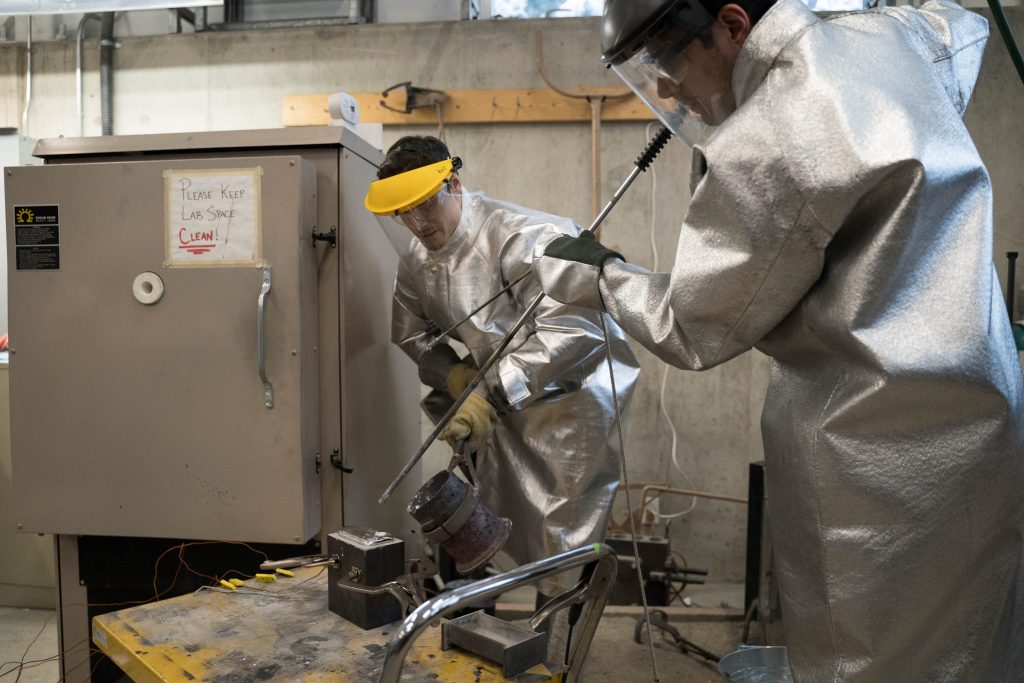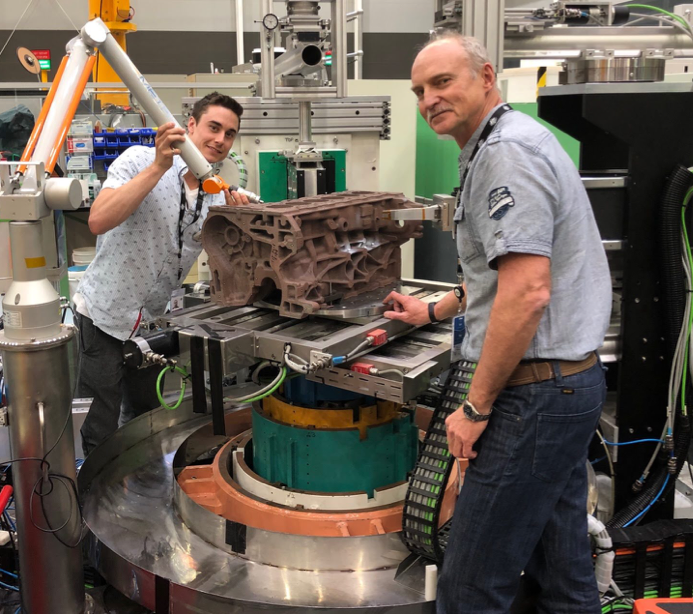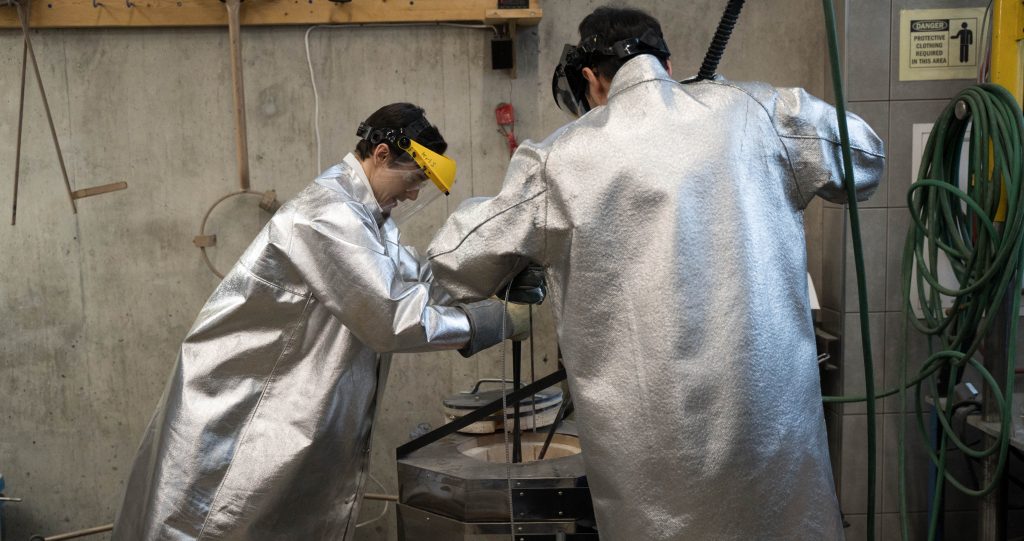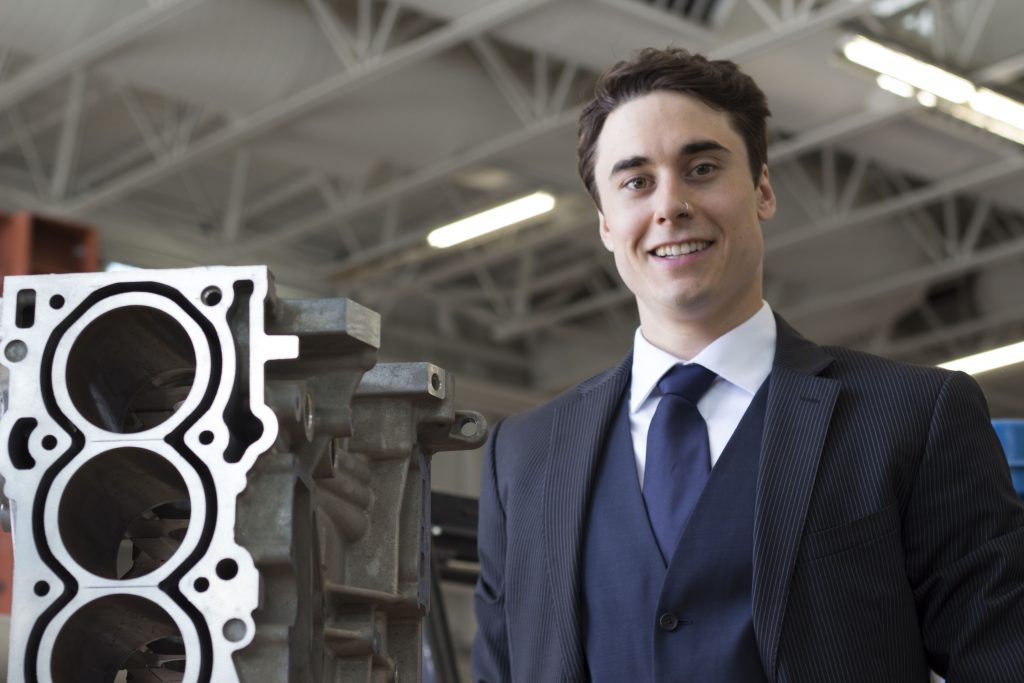Joshua Stroh BASc ’18 & PhD, expected ’20, Mechanical Engineering
What inspired you to go into Engineering?
Growing up, I pictured myself in many different professional careers. This included executive chef, welder/fabricator and scuba diving instructor. I struggled with deciding which career would best suit my goals for life and what would I like to do for the next 20-30 years. It was not until I realized that I could master each of those skills with practice alone that I began looking into the field of engineering. I have always excelled in math and I have always been curious about how things are designed and manufactured. I could not begin to imagine all of the complexity associated with even the simplest of products, let alone an automotive engine or biomedical heart valve. The idea that I could be a part of creating complex engineering components is one of the aspects that most inspired me to go into engineering.
Why did you choose the School of Engineering?
In short, small campus with tons to offer. Having spent my childhood growing up in the small city of Kamloops, I have always appreciated the simplicity and calmness of smaller towns. After completing my first year in the engineering transfer program at Thompson Rivers University (Kamloops), I knew that relatively small class sizes and direct communication to the professors is the key to an enjoyable and successful time at university. This made my decision to transfer to the School of Engineering at UBC Okanagan very clear. It also didn’t hurt that university is located in a city that frequently gets 35 degrees in the summer and meters of snow at the ski hills in the winter.
What were some of your highlights of studying at UBC Okanagan?
One of the biggest highlights of my time spent at UBC Okanagan was with the Motorsports Club. This group of talented individuals has an extremely hard work ethic, a strong desire to design, machine and manufacture some pretty amazing things and are always available to teach you about new aspects of engineering. I was fortunate and honoured to be elected in my last year as the powertrain lead which helped progress my organization and team management skills. The sometimes stressful, but always rewarding, time that I spent with the Motorsports Club strongly developed my engineering skills beyond what was learned in class. I created new friendships and connections for future employment, and the experience reinforced that engineering is an amazing field.
Were there some faculty / courses that really had an impact on your experience? If so, how/which ones?
During my time at UBC Okanagan, there were at least three faculty members and two courses that had a strong impact on my university experience. Without a doubt, I would not be where I am today without my graduate studies supervisor, Dr. Dimitry Sediako. Dr. Sediako is approachable, knowledgeable and personable. He makes time for anyone, even if he is already overloaded with meetings and prior arrangements. We immediately connected during our first meeting when our discussion quickly shifted away from work and moved towards talking about our project cars. Dr. Sediako is continuously teaching me how to be a proper engineer. An engineer who can perform high level research and science, obtain and maintain industry connections and who can work professionally and courteously.
I am grateful to have been introduced to Dr. Sediako by another faculty member Dr. Lukas Bichler. Dr. Bichler’s ENGR 377 course, now taught by Dr. Sediako, was the first to inspire me into considering the world of research. I specifically remember Dr. Bichler teaching us about various aspects of casting and I was immediately intrigued. Shortly thereafter, I reached out to Dr. Bichler to see if there were any research positions available and after a quick discussion, Dr. Bichler indicated that a new professor (Dr. Sediako) had just joined UBC Okanagan and his research on automotive and marine components and alloys may better fit my interests. Without Dr. Bichler’s interesting discussion on casting and his suggestion to reach out to Dr. Sediako, my time at UBC would have been much different from what it is now.
Another faculty member and course that had an impact on my experience at UBC Okanagan was Dr. Hadi Mohammadi and his Biomedical engineering course, ENGR 482. The course was unlike any other course I took during my undergrad. The course focused on applying basic engineering equations and tools to characterize and/or quantify how various systems in the human body function. The large in-class project which included a 30 minute presentation and extensive literature review furthered my interest in performing research, particularly when it involved engineering. I consider Hadi as a friend who has motivated me to ensure that I work in a field that I am interested in, which one day may include biomedical engineering.
Current role and company?
Lab Manager & Research Assistant at the High Performance Powertrain Materials Laboratory (University of British Columbia Okanagan)

Describe your role.
My primary role as a Research Assistant in the HPPM laboratory is to work closely with industry leaders, such as Nemak, Mercury Marine, Eck Industries, and Ford as well as with advanced characterization facilities such as the Australian Nuclear Science and Technology Organization, the Canadian Nuclear Laboratories, and Oak Ridge National Laboratory to characterize and develop cutting edge powertrain components and alloys that will be used throughout the transportation industry. Some of the projects include residual stress characterization using neutron diffraction and mechanical testing of sand cast aluminum engine blocks and die cast transmission gear-cases. In addition, a great deal of my time is spent developing and casting novel alloys in our casting lab at UBC Okanagan and performing tensile/creep/fatigue tests on novel high temperature aluminum alloys that have been reinforced with rare earth elements. My work in the HPPM laboratory is an ongoing effort, jointly led my industry and academia, to develop the next generation of powertrain components and alloys and will enable the transportation industry to improve the efficiency and reduce the carbon footprint of automobiles, air crafts and marine crafts.

In my role as Lab Manager, I coordinate all of the projects within our research groups, order lab supplies (thermocouples, sample containers, polishing supplies, etc) and most importantly I try my best to motivate and inspire new undergraduate students who are eager to join our research group. I provide guidance as well as training sessions for the equipment we use in our labs such as the scanning electron microscope, optical microscopes, sample preparation equipment and all of the machines in the machine shop.
How did you find your current role?
Before joining UBC Okanagan, Dr. Sediako led the automotive structural and powertrain materials development at the Canadian Nuclear Laboratories. The work involved the direct collaboration between his lab at CNL and automotive OEMs and Tier-1 suppliers (Nemak, Eck, GM and Ford). Dr. Sediako came from a career in industry and wanted to maintain his friendships/connections with many of these industry leaders. I was one of the first students to approach Dr. Sediako when he joined the School of Engineering and I was immediately fascinated by his research. So ,I asked him if there was any way I could be of help. A brief conversation later, I quickly joined his well-established, ongoing, and fast-paced research and began helping Dr. Sediako meet mission-critical commitments and deadlines while still attending a full course load. It was not hard for me to quickly immerse myself in Dr. Sediako’s research and I feel, to this day, extremely fortunate to be a part of such an interesting area of Engineering and Science. I believe that it was a combination of good timing, a hard work ethic, and a strong fascination with the automotive industry that ultimately led to me securing a position as the lab manager and research assistant in the High Performance Powertrain laboratory.
Overall, what would you say is the impact that UBC Okanagan and the School of Engineering has had on you?
The impact that UBC Okanagan and the School of Engineering has had on me is life changing. I have always strived for success and wanted to achieve great things with my life. UBC Okanagan provided me with a platform filled with amazing faculty, rewarding student clubs, and a place to discover and foster my interests and talents. I am grateful for the opportunity to have spent a considerable number of years with the School of Engineering, and I look forward to being a UBC Okanagan alumni for the remainder of my life.

Upon graduation, what is your plan?
Upon graduation, I plan to take a short but well-needed vacation. Following this, I will reach out to one of the many Canadian and International connections that Dr. Sediako has formed for me during my time with him in my undergrad and my PhD. I hope that engineering will allow me not only to be a part of incredible science but will also let me travel and see the world.
